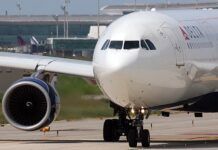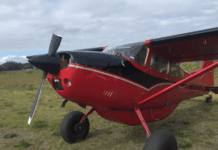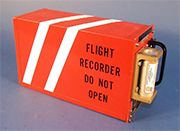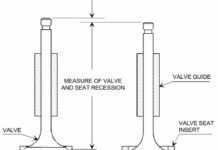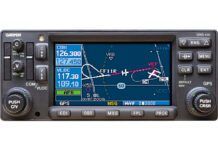Coming Soon To A City Near You?…
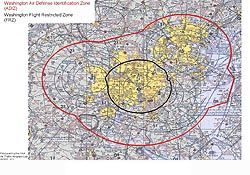 While the D.C.-area air defense identification zone (ADIZ) doesn’t affect most of us, pilots throughout the country are on notice that it could happen to them at any time. The FAA told the alphabets that if intelligence sources become aware of a threat anywhere else in the country, an ADIZ would be the preferred method of securing the skies. Given current tensions, it wouldn’t hurt any of us to study the ADIZ requirements and go over the national security provisions, interception procedures and intercept signals outlined in the FAA’s Aeronautical Information Manual section six, chapter five. …Certainly it would hurt less than a stinger up the exhaust pipe. For Washington-area pilots, however, these types of procedures are likely to become a permanent fixture. As AVweb reported earlier, SFAR 94 around Washington has been extended to Feb. 13, 2005, and that probably means the 15-mile no-fly zone is there to stay. The FAA says intelligence suggests there’s an ongoing threat to the nation’s capital and the SFAR is necessary to guard against airborne assault. AOPA continues to worry about the impact the extension will have on the three airports within the 15-nm zone. Operations at College Park, Hyde Field and Potomac Airfield have been severely curtailed by the flight restrictions.
While the D.C.-area air defense identification zone (ADIZ) doesn’t affect most of us, pilots throughout the country are on notice that it could happen to them at any time. The FAA told the alphabets that if intelligence sources become aware of a threat anywhere else in the country, an ADIZ would be the preferred method of securing the skies. Given current tensions, it wouldn’t hurt any of us to study the ADIZ requirements and go over the national security provisions, interception procedures and intercept signals outlined in the FAA’s Aeronautical Information Manual section six, chapter five. …Certainly it would hurt less than a stinger up the exhaust pipe. For Washington-area pilots, however, these types of procedures are likely to become a permanent fixture. As AVweb reported earlier, SFAR 94 around Washington has been extended to Feb. 13, 2005, and that probably means the 15-mile no-fly zone is there to stay. The FAA says intelligence suggests there’s an ongoing threat to the nation’s capital and the SFAR is necessary to guard against airborne assault. AOPA continues to worry about the impact the extension will have on the three airports within the 15-nm zone. Operations at College Park, Hyde Field and Potomac Airfield have been severely curtailed by the flight restrictions.
…As D.C.’s Gets Tweaked
 The FAA continues to adjust provisions of the ADIZ imposed on the Washington and Baltimore areas last week and there may be more changes to come. For starters, pilots operating in the traffic pattern of non-towered airports within the ADIZ will again be able to communicate with other pilots doing same (originally, pilots had to be in constant contact with air traffic control). AOPA and EAA continue to lobby for more concessions to accommodate aircraft not so easily made compliant. The ADIZ rule requiring 12-inch N-numbers has already been lifted for the Washington-Baltimore zone. There are also hundreds of antique, experimental and ultralight aircraft that don’t have the required transponders to operate in the ADIZ. EAA is lobbying for a one-time waiver that will allow owners to move their aircraft to friendlier (for them) skies.
The FAA continues to adjust provisions of the ADIZ imposed on the Washington and Baltimore areas last week and there may be more changes to come. For starters, pilots operating in the traffic pattern of non-towered airports within the ADIZ will again be able to communicate with other pilots doing same (originally, pilots had to be in constant contact with air traffic control). AOPA and EAA continue to lobby for more concessions to accommodate aircraft not so easily made compliant. The ADIZ rule requiring 12-inch N-numbers has already been lifted for the Washington-Baltimore zone. There are also hundreds of antique, experimental and ultralight aircraft that don’t have the required transponders to operate in the ADIZ. EAA is lobbying for a one-time waiver that will allow owners to move their aircraft to friendlier (for them) skies.
While the D.C.-area air defense identification zone (ADIZ) doesn’t affect most of us, pilots throughout the country are on notice that it could happen to them at any time. The FAA told the alphabets that if intelligence sources become aware of a threat anywhere else in the country, an ADIZ would be the preferred method of securing the skies. Given current tensions, it wouldn’t hurt any of us to study the ADIZ requirements and go over the national security provisions, interception procedures and intercept signals outlined in the FAA’s Aeronautical Information Manual section six, chapter five. …Certainly it would hurt less than a stinger up the exhaust pipe. For Washington-area pilots, however, these types of procedures are likely to become a permanent fixture. As AVweb reported earlier, SFAR 94 around Washington has been extended to Feb. 13, 2005, and that probably means the 15-mile no-fly zone is there to stay. The FAA says intelligence suggests there’s an ongoing threat to the nation’s capital and the SFAR is necessary to guard against airborne assault. AOPA continues to worry about the impact the extension will have on the three airports within the 15-nm zone. Operations at College Park, Hyde Field and Potomac Airfield have been severely curtailed by the flight restrictions.
The FAA continues to adjust provisions of the ADIZ imposed on the Washington and Baltimore areas last week and there may be more changes to come. For starters, pilots operating in the traffic pattern of non-towered airports within the ADIZ will again be able to communicate with other pilots doing same (originally, pilots had to be in constant contact with air traffic control). AOPA and EAA continue to lobby for more concessions to accommodate aircraft not so easily made compliant. The ADIZ rule requiring 12-inch N-numbers has already been lifted for the Washington-Baltimore zone. There are also hundreds of antique, experimental and ultralight aircraft that don’t have the required transponders to operate in the ADIZ. EAA is lobbying for a one-time waiver that will allow owners to move their aircraft to friendlier (for them) skies.


















